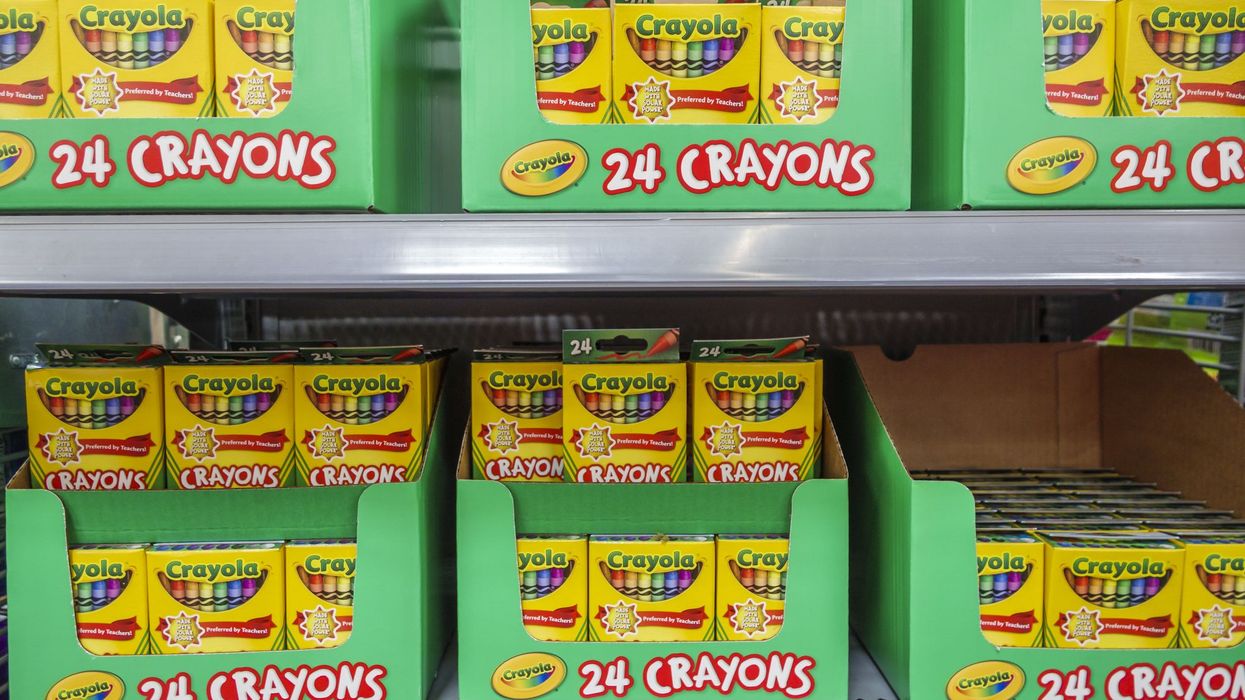September, 15 2008, 04:44pm EDT
For Immediate Release
Contact:
Dr. Urvashi Rangan, 646.594.0212
Rachel Weintraub, 202.387.6121
Naomi Starkman, 917.539.3924
CU & CFA: Materials Made From BPA Should Not Be Used in Food and Beverage Containers
FDA's Assessment of BPA Is Inadequate Given Mounting Scientific Evidence;
YONKERS, N.Y.
Consumers
Union (CU) and Consumer Federation of America (CFA) today announced
that the Food and Drug Administration's (FDA) draft assessment of
bisphenol A (BPA) as safe for food contact applications does not
adequately account for the large body of mounting scientific evidence
to the contrary. In addition, CU and CFA believe that materials made
with BPA should not be used in any food or beverage containers and
should be replaced with safer alternatives. On September 16, Consumers
Union will testify on behalf of both organizations at a public hearing
on this issue before a key FDA panel.
The
FDA said in a report last month that BPA is safe at current levels
found in food products and containers. The FDA report contradicts a
report released in early September from the National Toxicology Program
(NTP), which is part of the National Institutes of Health, and which
held that there is some concern that low-doses of BPA may affect brain,
behavioral and prostate development.
"The
safety of BPA, at current exposure levels in the U.S. population, has
not been demonstrated and the government is giving consumers
contradictory messages about the level of concern," said Dr. Urvashi
Rangan, Senior Scientist and Policy Analyst, Consumers Union, nonprofit
publisher of Consumer Reports. "BPA is metabolized quickly and
yet, constant, elevated levels are circulating in most Americans. This
indicates that consumers are constantly exposed to BPA."
"While
scientists continue to assess the health risks of BPA to consumers, the
FDA is taking on a bigger risk by taking no action to protect the
health and safety of consumers. Consumers expect to buy products that
have a proven safety record, not a lack of proven harm," said Rachel
Weintraub, Director of Product Safety and Senior Counsel for Consumer
Federation of America. "Too many examples of potential risks today
become tomorrow's hazardous reality. FDA should not take that gamble in
the face of mounting evidence of harm."
BPA-a
chemical found in the linings of cans and in many plastic products,
including sports bottles, food-storage containers and baby bottles-has
potential links to a wide range of health effects. Cellular, animals
and some human studies have shown BPA effects on the brain, prostate,
normal hormonal systems, gene programming which can lead to several
problems with reproduction, behavior, insulin resistance and even
cancer. CU was one of the first organizations to test and report on
consumer products with BPA, and warned consumers about the potential
risks almost a decade ago. CU recently tested "BPA-free" claims on
bottles and has also published advice on how consumers can reduce their
exposure to BPA. For more information, please visit the food section of
greenerchoices.org.
Since CU's first study, more than a hundred studies have been published
showing a wide range of adverse effects in animals at low doses of BPA,
doses that approximate current levels circulating in the human
population.
Consumers
Union and Consumer Federation of America are concerned about this
extremely narrow safety margin, and believe that the FDA should use its
full authority to prevent consumers from ingesting constant elevated
levels of BPA by eliminating BPA from food and beverage contact
applications. In addition, FDA should:
- Account for the entire body of scientific literature, not only 2-3 studies;
- Revise its safety threshold calculation;
- Convene
independent expert panels with representatives from consumer and
unbiased scientific groups to discuss how to include important,
modern-day toxicology tests and results into future risk assessments;
and - Expand the toxicological endpoints required for safety testing.
Congress has also demonstrated concern about this chemical. Bills
have been introduced, both in the House of Representatives (by Rep.
Edward Markey) and in the Senate (by Senators Schumer and Feinstein) to
ban BPA in various products.
"The
FDA depiction of BPA safety is like a picture taken at very low
resolution where the finer-and perhaps most important features-are
muted," said Rangan. "FDA has the opportunity, and the responsibility,
to consider hundreds of finer studies and to improve their ability to
analyze the problem. In the meantime, FDA should prevent consumers from
ingesting current questionable levels by eliminating the use of BPA
materials used for food and beverage containers."
LATEST NEWS
Investigation Reveals How Amazon Is Fleecing Public Schools With 'Algorithm-Driven Pricing'
"Public officials should be deeply concerned by what we found."
Dec 05, 2025
A detailed investigation released Thursday reveals that the e-commerce behemoth Amazon is using its market dominance and political influence to gain a foothold in local governments' purchasing systems, locking school districts into contracts that let the corporation drive up prices for pens, sticky notes, and other basic supplies.
The new report by the Institute for Local Self-Reliance (ILSR), titled Turning Public Money Into Amazon’s Profits: The Hidden Cost of Ceding Government Procurement to a Monopoly Gatekeeper, is based on purchasing records from nearly 130 cities representing more than 50 million Americans.
ILSR found that "cities, counties, and school districts spent $2.2 billion with Amazon in 2023—a nearly fourfold increase since 2016."
"Through its Amazon Business platform, the company has maneuvered to become the default source for office products, classroom materials, cleaning supplies, and other routine goods," the report states. "Today, it is embedded in most local governments, making inroads into state agencies, and dominating a new program designed to reshape how federal agencies buy commercial products."
Unlike the fixed pricing that's typical for government contracts, the agreements that Amazon has secured with local governments across the US entail "algorithm-driven pricing" to "covertly raise prices and inflate costs for governments."
"The result is dramatic price variation: One city bought a 12-pack of Sharpie markers for $8.99, while a nearby school district paid $28.63 for the identical pack that same day," ILSR said. "Our data contain thousands of similar examples, with some agencies paying double or even triple what others paid for the same items."
1. Hard to believe, but Amazon has persuaded schools and cities across the country to abandon competitive bidding and fixed price contracts. Instead, they're signing contracts with Amazon that specify dynamic pricing. The result: Paying $37 for 12 pens or $74 for 36 markers. pic.twitter.com/afIIkPucZL
— Stacy Mitchell (@stacyfmitchell) December 5, 2025
Overall, ILSR found that school districts bound to Amazon contracts spend twice as much per student as school districts without an agreement with the $2.5 trillion company.
“Public officials should be deeply concerned by what we found,” Stacy Mitchell, co-executive director of ILSR, said in a statement. “Amazon is reshaping public procurement in ways that expose taxpayer dollars to waste and risk. It has persuaded cities and schools to abandon safeguards meant to ensure fair prices and accountability—while driving out independent suppliers, eroding competition, and putting Amazon in a position to dictate terms.”
Having gained sweeping access to local government purchasing processes, Amazon is increasingly inserting itself into state and federal systems. ILSR noted that "Amazon dominates the General Services Administration’s Commercial Platforms Program, a new system for agencies to make purchases below $15,000 that do not require competitive bids."
"During the first two years of the program’s pilot phase," the group found, "Amazon captured 96% of sales."
ILSR emphasized that Amazon's dominance is by no means inevitable and can, with concerted action, be rolled back.
"A handful of cities and counties have recognized the risks of relying on Amazon and taken steps to restore transparency and keep public dollars local," the report observes. "Tempe, Arizona rejected an Amazon group-purchasing contract after hearing concerns from a local business owner. Between 2017 and 2023, the city cut its Amazon spending by 84% while increasing purchases from local suppliers. Phoenix likewise prioritizes local bids and has spent almost nothing with Amazon over the last decade."
Kennedy Smith, co-author of the report, said that "when local officials put real safeguards in place and prioritize local suppliers, they save money, strengthen their economies, and restore public control over public dollars."
To keep their procurement system free of the kinds of tactics Amazon uses to line its pockets with taxpayer money, ILSR urged state and local governments to prohibit so-called "dynamic pricing" in purchasing contracts and to prioritize buying from local businesses.
"By reclaiming control of public procurement, governments can safeguard dollars, strengthen local businesses, and ensure that the goods that sustain our schools and public services are supplied through systems that are transparent, competitive, and democratic," the group said.
Keep ReadingShow Less
Majority of Democrats, Independents Want Leaders to Fight GOP Attacks on AI Rules
"Voters are angry about Big Tech’s rogue AI telling teens to commit suicide and they want to see their congressional leaders fighting back," said one campaigner.
Dec 05, 2025
A poll published Friday revealed that a majority of Democratic and Independent US voters want congressional Democrats to fight GOP efforts to block states from passing laws regulating artificial intelligence—even as the technology evolves at a speed that has many experts concerned about serious and possibly existential consequences.
The Demand Progress poll of 2,257 likely voters conducted by Tavern Research found that voters across the political spectrum are wary of Big Tech's ability or willingness to ensure safe development of AI, with just 8% of Democratic respondents, 9% of Independents, and 18% of Republicans saying they trust companies to "adequately prioritize safety."
Respondents across the board—81% of Democrats and Independents and 74% of Republicans—also agreed that "large technology companies have too much influence over AI policy."
Although an earlier Republican attempt to slip a 10-year ban on state AI regulation into the massive One Big Beautiful Bill Act signed by President Donald Trump in July was shot down in the Senate, a bill introduced in September by Rep. Michael Baumgartner (R-Wash.) would impose a temporary moratorium on state laws regulating artificial intelligence.
So far, Trump's most notably robust regulation of artificial intelligence has been his executive order aimed at preventing "woke AI." His other AI-related edicts have rolled back regulations, including some meager steps taken under former President Joe Biden to bolster safety.
Last month, Trump signed a directive launching the Genesis Mission, "a new national effort to use artificial intelligence to transform how scientific research is conducted and accelerate the speed of scientific discovery"—even as critics warned that the administration's lax approach to regulation poses safety and structural risks.
As experts urge a more measured approach or even a pause to AI development, 56% of Democratic and 62% of Independent respondents to the new poll want Senate Minority Leader Chuck Schumer (D-NY) and House Minority Leader Hakeem Jeffries (D-NY) to work to block Republicans’ policy to prevent states from regulating AI.
Additionally, 61% of Democratic voters and 68% of Independents said they would be less likely to support a Democratic member of Congress who backed a bill to prevent states from regulating AI. Just 15% of Democrats and 14% of Independents said that they would be more likely to support lawmakers who approve such legislation.
On Monday, House Democratic Leader Hakeem Jeffries avoided taking a stance on the issue, saying that it “hasn't been brought to the leadership level yet.”This isn't enough. Our poll found that voters want to see their congressional leaders fighting back against AI deregulation.
[image or embed]
— Demand Progress (@demandprogress.bsky.social) December 5, 2025 at 6:53 AM
On Monday, Jeffries avoided taking a stance on the Republican effort to ban AI guardrails, arguing that it hasn't yet reached the leadership level. Critics urged him to speak out against the legislation.
“Democratic and Independent voters overwhelmingly want to see Hakeem Jeffries and Chuck Schumer fighting Donald Trump and Big Tech’s attempt to ban states from enacting AI safeguards, not back down and compromise,” Demand Progress policy director Emily Peterson-Cassin said in a statement Friday.
“It’s not enough for Leader Jeffries to say that the issue hasn’t been brought to him yet," she added. "Voters are angry about Big Tech’s rogue AI telling teens to commit suicide and they want to see their congressional leaders fighting back.”
Opponents of a more cautious approach to AI development argue that the United States cannot afford to fall behind competitors including China in the rush to achieve artificial general intelligence (AGI), a hypothetical advanced AI that can understand, learn, and apply knowledge of any subject as well as or better than a typical human.
The race to AGI and development of AI systems in general is fraught with perils ranging from cybercrime, consumer manipulation, erosion of democracy, and worsening inequality to what many experts warn is the distant but possible threat of uncontrollable AI wiping out humanity.
With so much uncertainty—and even danger—accompanying the unprecedented promise of AI, an increasingly aware public favors caution. Majorities of respondents to poll after poll say they want more, not less, AI regulation.
Keep ReadingShow Less
'All of Them Constitute Murder,' Amnesty Says of Trump Boat Bombings
"Congress must take action now to stop the US military from murdering more people in the Caribbean and Eastern Pacific."
Dec 05, 2025
Human rights organization Amnesty International is cautioning critics of the Trump administration's boat-bombing spree against getting bogged down in the precise details of each individual strike if it means losing sight of the bigger picture.
Daphne Eviatar, director for security and human rights for Amnesty International USA, said on Friday that it would be a mistake to merely condemn the Trump administration for launching a double-tap strike aimed at killing shipwrecked survivors of an initial attack, because the entire campaign of bombing vessels based on the suspicion that they are carrying illegal narcotics is unlawful.
"All the strikes so far have been illegal under both domestic and international law," she said. "All of them constitute murder because none of the victims, whether or not they were smuggling illegal narcotics, posed an imminent threat to life. Congress must take action now to stop the US military from murdering more people in the Caribbean and Eastern Pacific."
Eviatar said that law enforcement organizations for decades have had the power to intercept suspected drug boats at sea without having to resort to mass killing.
“Intercepting purported drug boats is a law enforcement operation, subject to policing standards derived from international human rights law, which holds that all people have the rights to life and a fair trial, and only allows states to use lethal force when an imminent threat to life exists," she said. “A state intentionally killing someone outside those circumstances is committing an extrajudicial execution, a form of murder, no matter what crime the person is alleged to have committed."
The Trump administration's boat strikes have come under fresh legal scrutiny after the Washington Post revealed last week that the US military had launched a second strike during an operation on September 2 to kill two men who had survived an initial strike on their vessel.
Rep. Jim Himes (D-Conn.), the ranking member of the House Permanent Select Committee on Intelligence, watched video of the September 2 double-tap attack during a classified briefing on Thursday, and he described the footage as "one of the most troubling things I’ve seen in my time in public service."
Himes told reporters that the video showed the US military firing missiles at two men who had survived an initial attack on their vessel and who were floating in the water while clinging to debris.
“You have two individuals in clear distress, without any means of locomotion, with a destroyed vessel, [who] were killed by the United States,” he said.
The US so far has carried out 22 known strikes on purported drug boats, killing at least 87 people.
Keep ReadingShow Less
Most Popular


